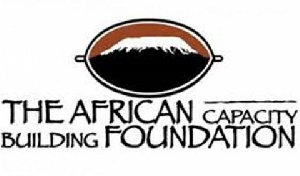 African Capacity Building Foundation (ACBF) logo
African Capacity Building Foundation (ACBF) logo
The African Capacity Building Foundation (ACBF), African Union's Specialized Agency for Capacity Development, is joining forces with the government of Ghana to convene its 26th Board of Governors Meeting (BoG) in Accra, from 4 to 5 September 2017, under the theme “Enhancing Access to and Absorption of Development Resources in Africa.”
Placed under the patronage of President Nana Addo Dankwa Akuffo Addo , the 26th BoG Meeting will be preceded by a High Level Meeting, on the 4 September 2017, which will be attended by finance, economic development and planning ministers from across Africa; development partners from North America, Europe and Australia, as well as top officials from the African Union Commission (AUC), the African Development Bank (AfDB), the United Nations Economic Commission for Africa (ECA), the United Nations Development Programme (UNDP) and the World Bank, inter alia.
The high level meeting will provide an opportunity for these key development actors to reflect on means for effectively financing the continent’s development agendas and how to build related capacities.
The meeting will review and address the capacity needs and gaps as well as leadership and planning issues that are slowing the pace of Africa’s transformation. These relate to the inadequacies in internal resource mobilization strategies as well as difficulties in effectively absorbing and utilizing external resources when such resources are made available to African Governments.
“This 26th BoG is coming at a crucial moment when African countries are striving to implement Agenda 2063 and the Sustainable Development Goals, but are faced with inadequate human and institutional capacity to effectively implement the plans,” said Prof. Emmanuel Nnadozie – Executive Secretary of ACBF.
The meeting will also share experiences and practices on the use of Science, Technology and Innovation (STI) for socio-economic transformation and innovative ways of financing STI as part of developing the critical technical skills required for inclusive and sustainable development of African economies.
The ACBF Board of Governors will review the work of the Foundation in 2016, especially what it laid out for achieving within its current five-year strategy (2017 to 2021). The Strategy aims to support the emergence of Skilled People and Strong Institutions to Transform Africa, and is developed around 4 principal goals: enabling effective delivery of continental development priorities such as Agenda 2063; supporting countries to achieve tangible development results; enhancing the ability of the private sector and civil society to contribute to sustainable development and leveraging knowledge and learning to increase development effectiveness.
The Foundation uses five main approaches to deliver on these goals: 1) mobilizing and leveraging resources for capacity development, 2) generating and sharing critical fit-for-purpose knowledge, 3) extending grants and investments and providing fund management services, 4) providing capacity development advisory services, and 5) promoting innovation in capacity development.
At the end of the meeting, the Foundation’s secretariat will galvanize support from their Governors for successful implementation of the ACBF Strategy (2017-2021) including support in mobilizing resources for the implementation of the Strategy to create the desired impact across Africa.
“Funding capacity development strategies is no longer a choice for Africa especially if the continent wants to successfully implement the first ten year plan of Agenda 2063 and national development plans” said Prof Nnadozie.
“How quickly African leaders make the right choice on this issue, especially in supporting the comprehensive work done by ACBF and other capacity development think tanks, will highly determine the pace of implementation and success of this and other development plans at the national, regional continental and global levels.”